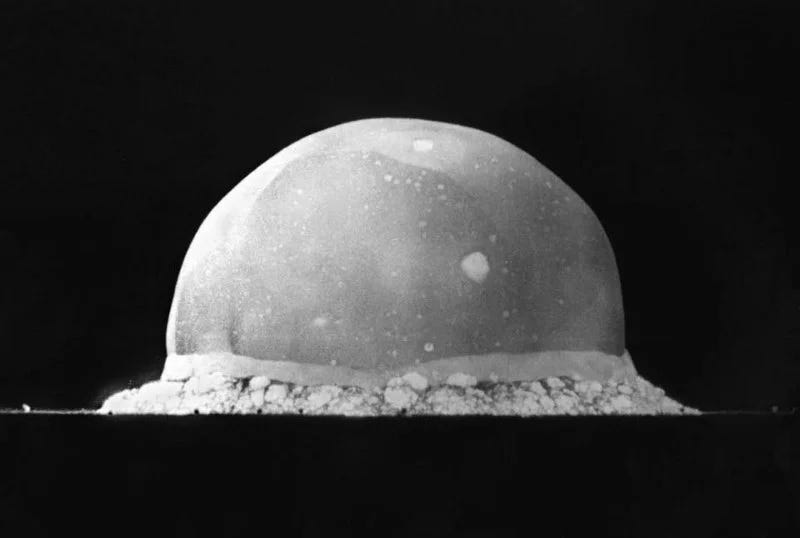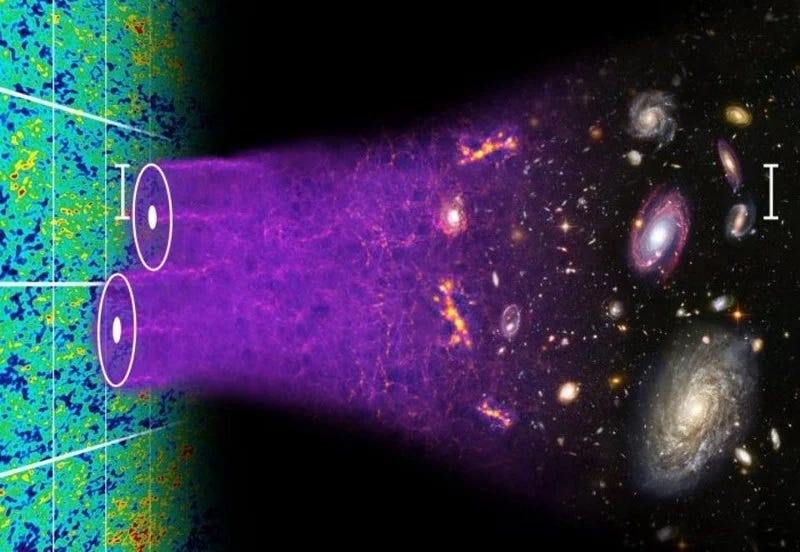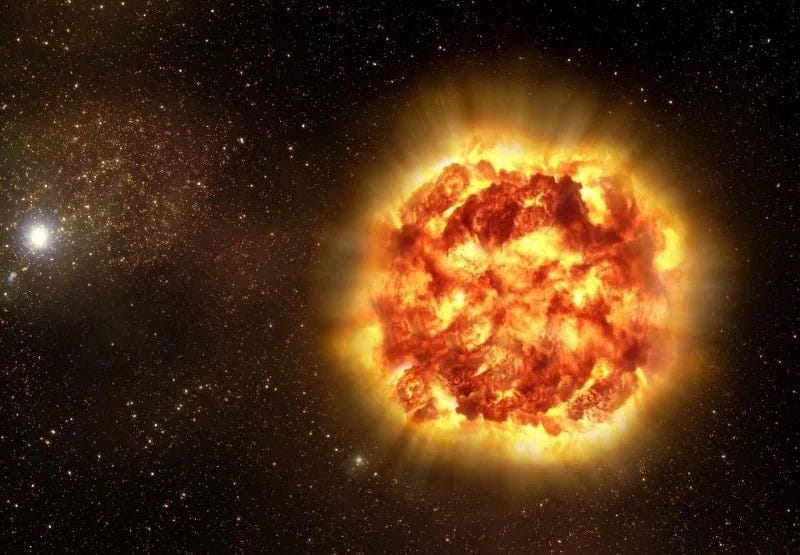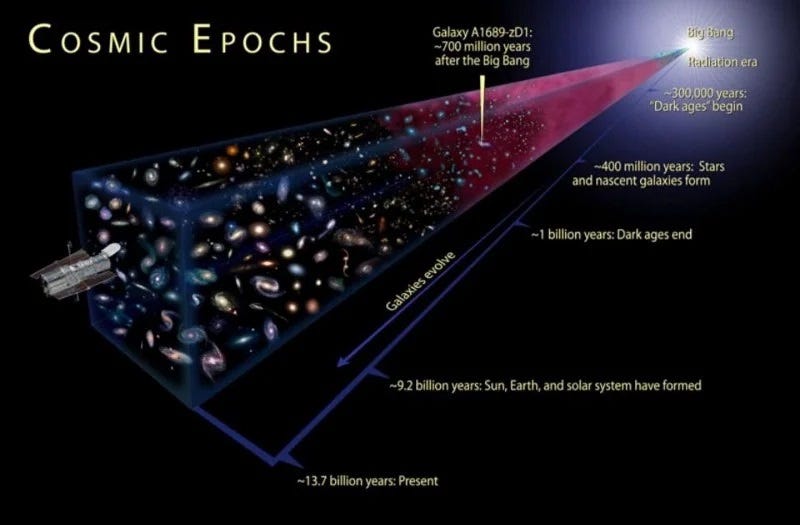Exploring the Origin of the Big Bang: Where Did It All Begin?
Written on
Chapter 1: Understanding the Big Bang
One of the frequent queries I encounter revolves around the origins of the Big Bang. People often wonder: Where did this event occur? Where did the universe's expansion initiate? How distant are we from that location? Is it observable through telescopes? Is there anything remarkable at that spot?
Although the universe emerged from the Big Bang, many—particularly those less familiar with physics and astronomy—harbor misconceptions about it. A common analogy likens the Big Bang to a massive explosion, such as that of an atomic bomb, occurring in empty space, resulting in the "fragments" of the universe dispersing outward. However, this analogy is fundamentally flawed.
To grasp why this perspective is incorrect, let’s first examine what happens during a typical explosion.

A standard explosion originates from a single point, causing the exploded materials to disperse rapidly in various directions. The farther one moves from the explosion's center, the fewer materials will be present. This is also true for energy; thus, one can always determine the explosion's center by observing where matter and energy density is the highest.

However, the universe presents a starkly different scenario. Regardless of the direction in which we look, the universe appears remarkably uniform. No matter where we direct our gaze, we observe galaxies receding from us. If we attempt to trace back the motion of these galaxies to find the origin point, it turns out (surprisingly) that this point is where we currently stand!
Does this imply that we are fortunate enough to occupy the center of the universe's inception? Not quite. Other factors do not align; for instance, in the case of an explosion with matter emanating from a single location, as we look further out, we would expect to see fewer galaxies, but this is not what we observe.

In a typical explosion in space, outer matter would move the fastest, dissipating energy rapidly, resulting in lower matter density at the explosion's periphery compared to the center. However, astronomical observations reveal a different reality.
The truth is that the Big Bang was not an explosion in the conventional sense. In fact, it would be more accurate to describe it as an expansion. Rather than exploding from a specific point to another, space itself expanded! There isn’t a distinct location where this expansion began; instead, the entire universe is essentially the Big Bang point, expanding to an unimaginable scale!
But what about the fact that tracking the motion of galaxies suggests that this motion originated from our location? The answer is straightforward: if we choose any point in any galaxy as our observation point, we will also find that all other galaxies seem to be receding from it. In reality, nearly ALL galaxies are moving away from one another.

Thus, in our universe, it is impossible to identify a singular location where the Big Bang transpired. Instead, we can say that our universe is a continuous Big Bang or, perhaps more accurately, a vast expansion.
If you wish to discover more articles about space, feel free to clap!
Don’t forget to subscribe to our channel and post your questions, which I will address in future articles.